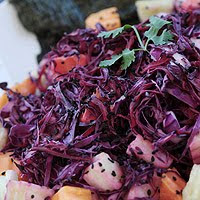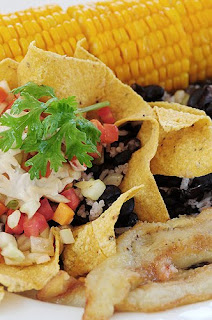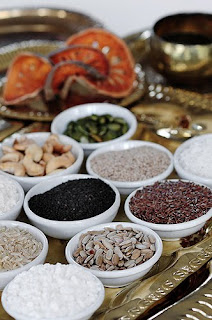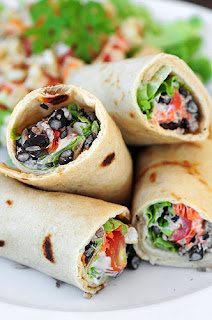Vegetarian diet, which lowers saturated fats and cholesterol but increases fiber, is a very good eating plan for both maintaining a healthy body and for losing weight. This can supply the body with the recommended daily intake of major nutrients if carefully planned.
Some types of vegetarian diets include animal products; others have no animal source at all. Some nutrients that animal products provide are calcium, iron, vitamin D and B12, and zinc. These nutrients may not always be found in these diets.
There are non-animal food groups that are rich in these nutrients, while at the same time, low in cholesterol and high in fiber. These are oats, nuts, and soy.
 Oats are a good source of fiber and these foods are proven to reduce cholesterol content in the body. Examples of foods belonging to this group are oat bran, whole oat flour, and oatmeal.
Oats are a good source of fiber and these foods are proven to reduce cholesterol content in the body. Examples of foods belonging to this group are oat bran, whole oat flour, and oatmeal.
Nuts are healthy alternatives to junk food. It is also filled with different nutrients like fiber, protein, vitamins, antioxidants, phytonutrients, mono-unsaturated and polyunsaturated fats, and plant sterols. Recommended nuts are almonds, hazelnuts, peanuts, pecans, pistachios, pine nuts, and especially walnuts, which have high omega-3 fatty acids. Avoid or lessen salted nuts or chocolate-coated nuts, and some nuts, which are high in fat content, like Brazil, cashew, and macadamia.
Soy, made of soya beans, is highly effective in cholesterol level reduction. It is also a good substitute for milk and meat products. Miso, soy flour, soymilk, soy nuts, and tempeh are foods that fall into this group.
Vegetarians, although healthy in living, must not forget to include these food groups in their diet to continually lessen cholesterol level and enrich fiber content in the body while at the same time replenishing protein. Any diet always needs wise, healthy, and balanced choices of foods.
By Faviano Torres
Some types of vegetarian diets include animal products; others have no animal source at all. Some nutrients that animal products provide are calcium, iron, vitamin D and B12, and zinc. These nutrients may not always be found in these diets.
There are non-animal food groups that are rich in these nutrients, while at the same time, low in cholesterol and high in fiber. These are oats, nuts, and soy.
 Oats are a good source of fiber and these foods are proven to reduce cholesterol content in the body. Examples of foods belonging to this group are oat bran, whole oat flour, and oatmeal.
Oats are a good source of fiber and these foods are proven to reduce cholesterol content in the body. Examples of foods belonging to this group are oat bran, whole oat flour, and oatmeal.Nuts are healthy alternatives to junk food. It is also filled with different nutrients like fiber, protein, vitamins, antioxidants, phytonutrients, mono-unsaturated and polyunsaturated fats, and plant sterols. Recommended nuts are almonds, hazelnuts, peanuts, pecans, pistachios, pine nuts, and especially walnuts, which have high omega-3 fatty acids. Avoid or lessen salted nuts or chocolate-coated nuts, and some nuts, which are high in fat content, like Brazil, cashew, and macadamia.
Soy, made of soya beans, is highly effective in cholesterol level reduction. It is also a good substitute for milk and meat products. Miso, soy flour, soymilk, soy nuts, and tempeh are foods that fall into this group.
Vegetarians, although healthy in living, must not forget to include these food groups in their diet to continually lessen cholesterol level and enrich fiber content in the body while at the same time replenishing protein. Any diet always needs wise, healthy, and balanced choices of foods.
By Faviano Torres




